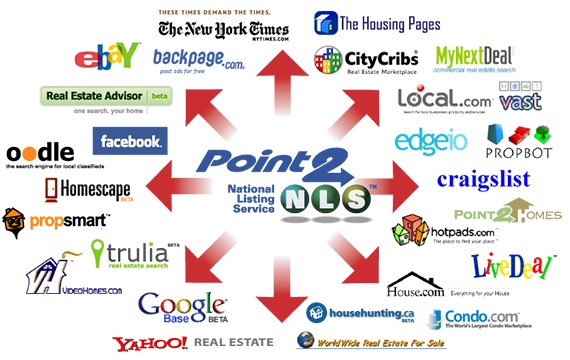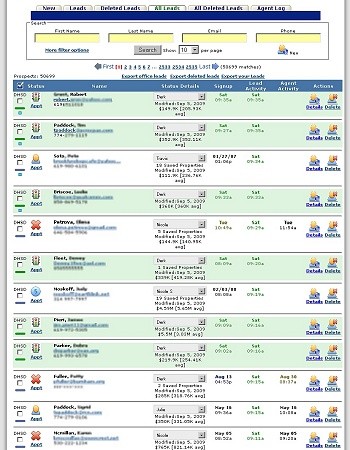Realtors Push Back Against Zillow and MLS Listing Syndicators
Post on: 30 Июнь, 2015 No Comment

Realtors Push Back Against Zillow and MLS Listing Syndicators
Geoffrey Schiering weighs in on the MLS listing syndication war between aggregators such as Zillow, Trulia and Realtor.com and MLS Boards in multiple markets including the recent dropping of Diverse Solutions from Denvers MetroList approved 3rd Party IDX Vendor List:
Realtors have finally started to push back against the questionable practices of the real estate listing aggregators (or syndicators), Zillow, Trulia, Realtor.com and others. For years, these deep-pocketed online media corporations have been growing exponentially at the expense of the professional real estate community. The aggregators take the intellectual property of individual Realtors, mix it with other content, re-brand the property as their own, and then sell related advertising rights back to the Realtors who they took the property from in the first place. And in the process they create substantial confusion in the public marketplace of real estate buyers and sellers. Realtors have begun to realize that this is harming the real estate industry, and a real estate syndication war is heating up.
So how have the listing aggregators been allowed royalty-free publishing rights to copyrighted materials? Well, the individual real estate agents and real estate brokers who create MLS listings are members of local associations of Realtors. The Realtors associations publish the Multiple Listing Service (MLS) for their local communities. And the Realtors associations have, until recently, given unrestricted permission Zillow, Trulia, Realtor.com and others to republish the MLS listing feeds.
But last month the Associations of Realtors in San Diego and in Denver took bold steps to attempt to protect the integrity of their MLS data vis-à-vis the syndicators. First Denver MetroList announced that it would no longer provide an MLS data feed to Diverse Solutions . an MLS listing distributor that was recently acquired by Zillow. Then the San Diego Association of Realtors modified its MLS data stream to allow listing agents to input Advertising Remarks which include the names, website addresses, and phone numbers of the listing agents. In the next two months the large syndicators must display the Advertising Remarks alongside the San Diego real estate listings on their sites. Any syndicators who refuse to make the change within the next 30 days will be cut off from the San Diego Realtors MLS.
The move by the San Diego Realtors (Sandicor ) is a particularly positive step. A big problem with the MLS aggregators system is that they tend to mislead the public regarding the identity of the listing agent. In most cases the agents who are displayed alongside the syndicated listings have no relationship to the property, and may have little or no knowledge of the neighborhood. The recommended agents are usually just advertisers on the syndicators websites. This poses a serious likelihood of confusion with the public, and the San Diego Association of Realtors is working to fix that.
The MLS has been, and will continue to be, critical to well-functioning real estate markets. Individual agents and real estate brokers pay a hefty monthly fee to belong to their local boards of Realtors. Access to the MLS, both for receiving and for distributing information about homes for sale, has always been a big reason for Realtor membership. It is the way that professional Realtors exchange information about properties in their markets. And, with the help of IDX (Internet Data Exchange) and RETS (Real Estate Transaction Standard) technology, the MLS has become a direct source of information to the public. The MLS, either directly or through its member Realtors, matches buyers and sellers in an efficient, open marketplace.
So isnt it a good thing when the MLS data is republished by Trulia. Realtor.com. or Zillow. Wont sellers just get more exposure with buyers and buyers have an easier time finding properties for sale? It would be great if it were that simple, but the answer is NO. It is not better.
Syndicators Mislead The Public
Another big problem is that the local MLS is not the only place that syndicators such as Zillow get information. The syndicators grab information from a variety of online sources. And not all the information is accurate or up-to-date. As a result, the public is being confused and often misled. Realtors are losing credibility with a public who no longer knows who or what to believe.

Ive personally published a house for sale advertisement on Craigslist (a home that was not on the MLS), and in less than 24 hours the property description and photos that Id posted on Craigslist were being displayed alongside my local San Diego MLS listings on Zillow. Anyone can publish anything on Craigslist, whether its real, fake, exaggerated, or a downright scam. And when Zillow displays unverified, junk information right alongside MLS listings, the public assumes that the junk is just as accurate as the MLS data.
Outdated information on Zillow, Trulia, and similar sites is also harmful. I regularly receive inquires from prospective buyers whove seen this or that property for sale on Zillow. When I look it up I find that the property is in escrow, or was recently sold, or was sold literally years earlier. Occasionally there are property addresses that dont even exist. And when people get the truth they are often skeptical. If it was on Zillow, they wrongly assume, it must be correct.
The Realtors associations that publish MLS listings have strict standards, and those standards are meant to protect the public and to protect the reputations of member Realtors. The listings must contain accurate information and measurements. The listings may not have any misleading sales language or cross-promotions with other businesses. San Diego MLS Listings must be removed from the MLS within 48 hours after an offer is accepted from a potential buyer. Short sales and foreclosures with accepted offers awaiting bank approval must be re-categorized in Contingent status rather than remain on the MLS as an active for sale listing. There is a whole book of rules that Realtors must follow with regard to MLS listings and advertising. Yet the rules dont apply to the listing aggregators. Public beware.
Local Real Estate Sites More Accurate
Fortunately the public does have access to legitimate MLS listing information. Individual Realtors and real estate brokers have access to MLS data feeds. The individual agents and local real estate brokers publish those MLS data feeds directly to their websites with the help of IDX and RETS service providers. The information on these individual agent and local brokerage websites is almost always more timely and accurate than the information found on Zillow or Trulia. Realtors who do not comply with the MLS listing rules on their websites can lose their Realtor membership and MLS service. There has been no such incentive for the listing aggregators.
The MLS listing syndicators can expect increased resistance from other local associations of Realtors. The syndicators have been profiting from the work of Realtors by selling advertising placement to the Realtors themselves. The syndicated websites tend to confuse the public regarding the identity of the listing agents. The MLS listings published by the syndicators are mixed in with inaccurate and unreliable data that the syndicators gather from other sources. As a result, the reputations of Realtors and the Realtor Multiple Listing Services are compromised . In the real estate business, reputation and reliability are critical factors in every Realtors career. Realtors and the public at large should be concerned, and support efforts to bring the listing aggregators under more reasonable control.














